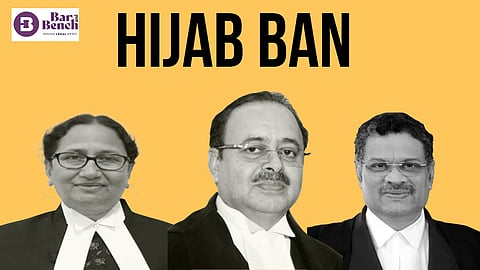
- News
- Columns
- Interviews
- Law Firms
- Apprentice Lawyer
- Legal Jobs
- हिंदी
- ಕನ್ನಡ

In the hijab ban hearing matter on Monday, the Karnataka High Court was told that college development committees comprising Members of Legislative Assembly (MLAs) could not decide on issues of public order and fundamental rights.